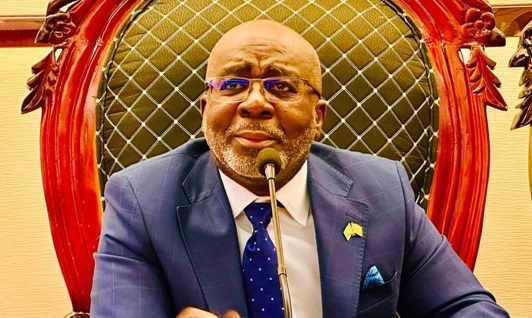LIBERIA – The embattled Speaker of the House of Representatives, Cllr. J. Fonati Koffa, has come under intense scrutiny for his creation of a supplementary payroll that many view as a reckless drain on government resources. By incorporating individuals who are either not employed by or are loosely affiliated with the House, Koffa has exacerbated government spending and compromised essential funding for public services. This questionable decision by the Speaker reflects a disregard for financial responsibility and accountability at a time when the country can least afford it.
The supplementary payroll has placed several individuals on the government’s payroll who are not actively working within the House of Representatives. One striking example is Mr. Isaac Garyeazon Redd Sr., a former Deputy Director at the Liberia Broadcasting System (LBS) under the previous administration. Despite not being formally employed by the House, Mr. Redd is reportedly receiving a salary of $1,000, according to the October supplementary payroll of the House of Representatives. Such cases illustrate how supplementary payrolls can become avenues for politically motivated payouts rather than actual work-related compensation.
Equally concerning is the inclusion of journalists, whose roles do not directly contribute to legislative activities, on the House payroll. For instance, Winston Blyden reportedly receives $490, while Jallah Grayfield receives $700. These payments raise questions about the intent behind these allocations, especially when public funds should prioritize health care, education, and infrastructure—critical areas that suffer the most from budget strain.
The financial consequences of these supplementary payrolls are substantial. With these added salaries, government spending now stretches beyond the allocated budget. This increase in expenditures is unsustainable and has already created funding shortfalls in vital public services. Every dollar diverted from essential services represents a missed opportunity to address Liberia’s pressing needs, from under-resourced hospitals to crumbling schools and neglected infrastructure projects.
While the supplementary payroll scheme may provide short-term benefits to the individuals on it, the long-term consequences for the nation are deeply troubling. Liberia’s government should be directing resources toward improving citizens’ lives, not catering to political affiliates or adding redundant roles in government offices. The inclusion of non-essential personnel like Mr. Redd and others on the House payroll undermines the credibility of Speaker Koffa’s leadership and raises serious concerns about financial mismanagement within the House.
Speaker Koffa has not issued a public statement to address the matter, his silence could be seen as justifying these expenses while ignoring essential public needs—an approach that is not only fiscally irresponsible but also morally questionable. At a time when the Liberian public expects transparency and accountability, this silence wear away trust in the legislative body and further strains an already overburdened budget. It is critical that Speaker Koffa reevaluates the supplementary payroll structure and redirects funds toward urgent national priorities, demonstrating a genuine commitment to Liberia’s growth and stability.






